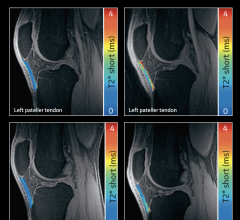
January 20, 2015 — The validity of randomized clinical trials in cancer has recently been called into question as many healthcare professionals are decrying the “experimerical” nature of these studies.
Jay F. Piccirillo, M.D., FACS, medical advisor for PotentiaMED, said, “The very nature of these studies is biased because they are often sponsored by pharmaceutical and device companies who have a vested interest in ensuring the studies have a positive outcome.”
Piccirillo outlines the reasons randomized clinical trials are problematic:
- Randomized clinical trials enroll younger and less racially diverse patients of the cancer population. “We know that roughly 53 percent of cancer patients are over the age of 65,” said Piccirillo, “Yet less than 33 percent of patients in the study are in this age group. Hence, we are getting data that is based on people who are much younger than the majority of our patients. Additionally, most of the people studied are white, meaning that we don’t have much data on people of color.”
- Randomized clinical trials don’t consider comorbidity. “We have a saying in cancer treatment: ‘Sicker people die sooner,’” said Piccirillo. “This means that cancer patients with coexisting lung disease, heart disease, diabetes or other illnesses are less likely to improve with treatment and more likely to succumb quicker than cancer patients with less severe comorbidity. However, randomized clinical trials often exclude patients with comorbid ailments and so the results are not applicable to a large number of cancer patients.”
- Randomized clinical trials don’t consider quality of life. “Randomized clinical trials seek ‘objective’ markers such as survival and tumor recurrence rates,” said Piccirillo, “These are important endpoints, however, patients increasingly also want information on quality of life and this important data simply isn’t available through clinical trials.”
- Randomized clinical trials aren't publicized equally. “It is an inescapable truth that many of these trials are performed by companies who have a vested interest in the outcome,” said Piccirillo. “As such, they only tend to submit for publication and publicize positive findings. In fact, one study of selective publication bias found that 97 oercent (37 of 38) of positive trials were published while only 33 percent (8 of 24) of negative trials were published. This means that clinicians and patients who review the published medical literature receive a biased impression of treatment effectiveness.
“The reality is that only four percent of adults with cancer are involved in randomized clinical trials, yet healthcare professionals are using this information to determine the treatment for the other 96 percent of the population,” said Piccirillo.
PotentiaMED was founded in 2009 with the goal of collecting and supplying invaluable treatment information for patients, doctors, hospitals, insurance providers, medical technology, and insurance providers. The PotentiaMED database offers patients all the data they need at their fingertips, from life expectancy to side effects to quality of life to future risk.
For more information: www.potentiamed.com


 July 25, 2024
July 25, 2024 








